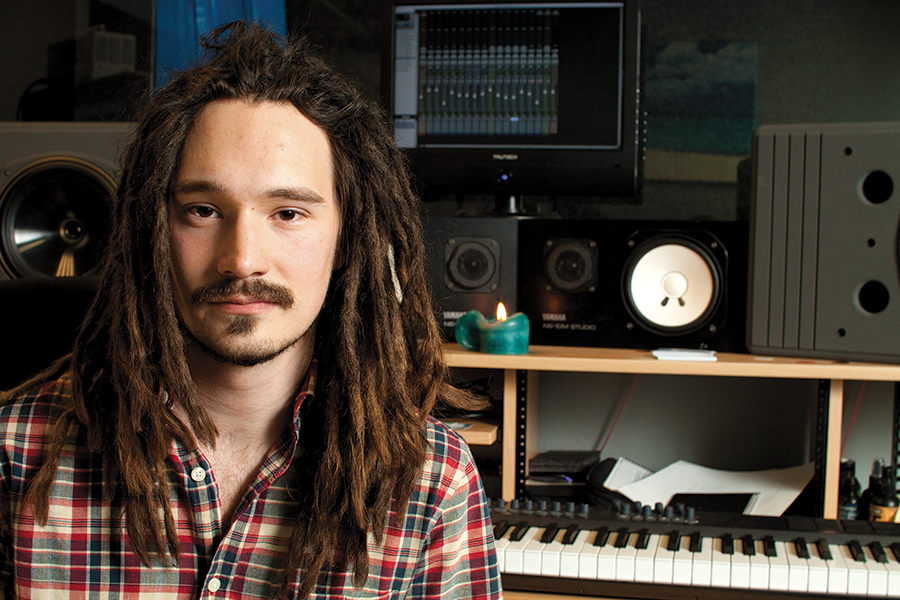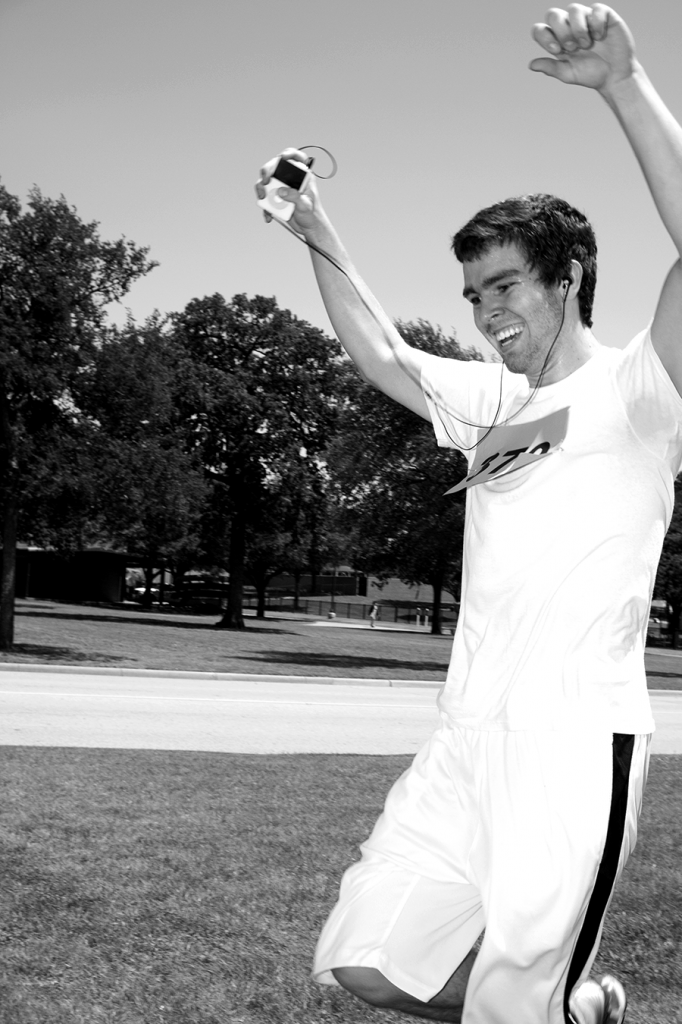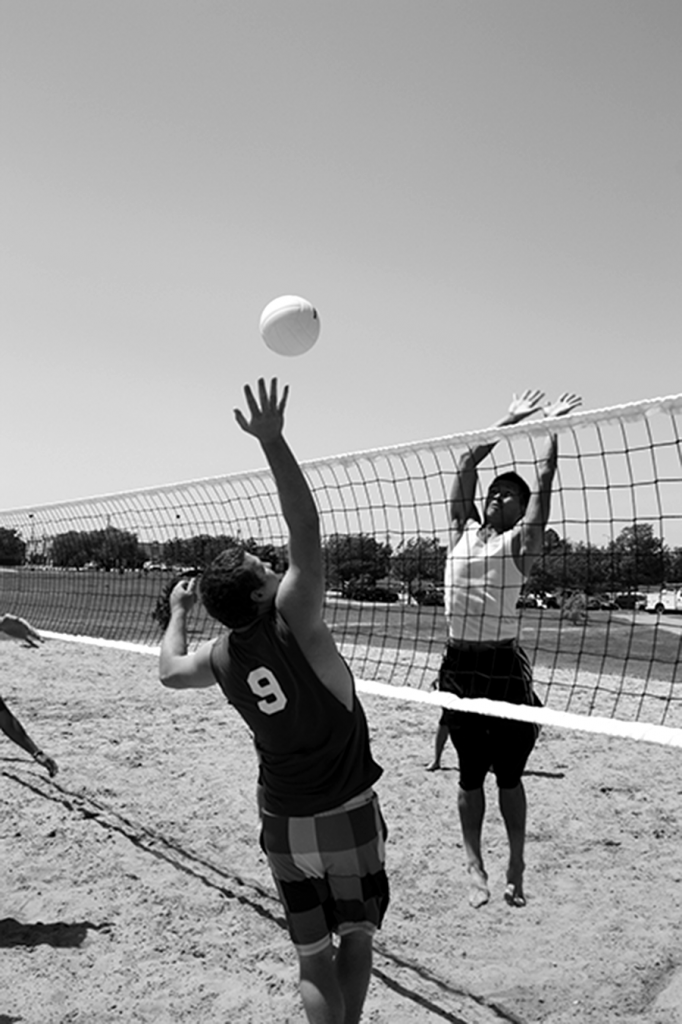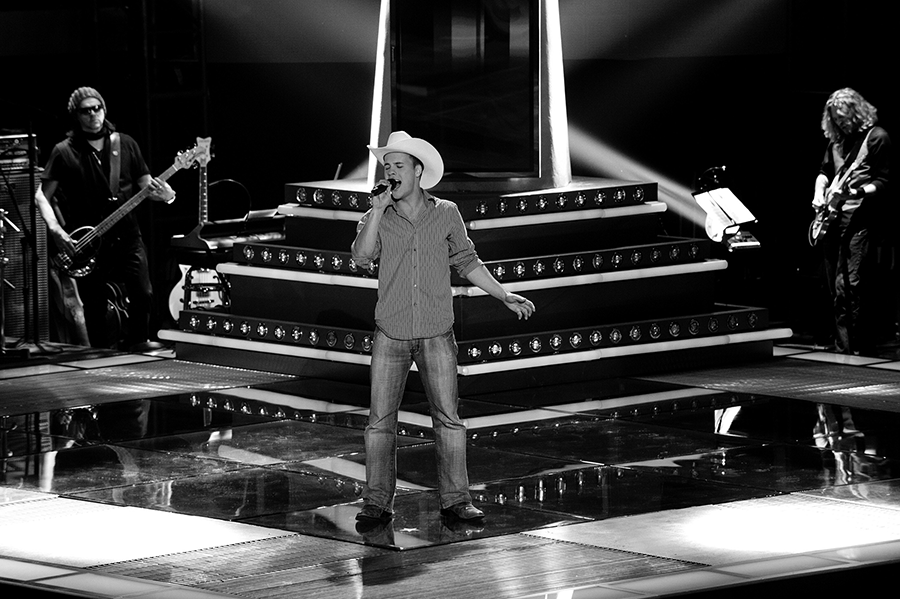By Drew Williams/sports editor
On one half of the basketball court, students are arguing and complaining about bad calls or not getting the ball enough. On the other half, you can’t find a student not showing a smile.
On this side, there are no crossover dribbles, behind-the-back passes or slam dunks, but there is no mocking or taunting either. The students, all part of the Friday physical education class of Pathways, are completely OK with that because they live by Jan Miller’s motto: “My best is good enough.”
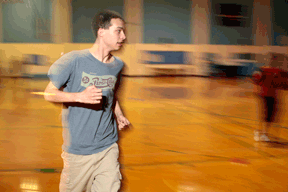
Casey Holder/The Collegian
Miller is a TCC instructor/counselor, but she spends most of her time as the coordinator of Pathways, the NE branch of Transitional Skills, a TCC-based program that offers classes and workshops to help prepare students with special needs for the real world.
The SE program First Choice and the NW program Stepping Stones are also part of Transitional Skills.
Pathways has been around since 2001 when Miller was hired as the part-time coordinator. She is now a full-time staff member because of the program’s success.
“We started with maybe seven students, 10 max. Now, we have about 30 students,” she said.
When Pathways first started, it was known as CLASS, which stood for career, life, academics, skills, success. Though the name has changed, the five points of CLASS are still the main focus of Pathways.
Pathways meets 1-5 p.m. Mondays, Wednesdays and Fridays and has classes that focus on computer skills, interpersonal skills, job skills, life skills, math, communications and physical education, all in an effort to prepare the students for life outside college.
“Our goal is to give them the skills they need to be part of society,” Miller said.
The program consists of Tier One and Tier Two.
“The entire program is for students with disabilities, such as autism,” assistant professor Kathi Trewitt said. “Tier Two is for high-functioning students who are mainly in there for social issues.”
The main goal for both tiers is for students to communicate well, get a job and handle their finances. To see if the students’ hard work is paying off, many Tier One students will participate in simulated interviews. Most interviews are done with TCC department heads, but sometimes outside companies, such as UPS, will come and interview students to see if they have the interview skills needed to get a good job. The interviews are videotaped so the instructors can give feedback later.
Tier One students also participate in a virtual workplace, where students can get hands-on experience in a business atmosphere.
“We set up the classrooms to look just like a business, such as a grocery store, a bank or a clinic,” Miller said. “Kroger has come to the school to make the classroom look just like a grocery store. CareNow has been before and made it look just like a clinic. The bank has been before and set up real computers and stalls to make the rooms look just like a bank.”
But the most important thing, says instructor Elaine Eye, is the math class in each tier.
“The biggest fear of our students’ parents is that they go into a store, hand the cashier money, and he can take whatever he wants,” she said. “I’ve seen tremendous growth while teaching them to count money and make sure they get the correct change so people can’t take advantage of them.”
Once students graduate from Tier One to Tier Two, their skills classes push them harder, their math classes get a little more difficult and their Friday physical education class is replaced with an internship at TCC. Tier Two student Ashley Nelson works in the Administration Building in continuing education for her internship.
“She likes it a lot,” her mother Lisa Nelson said. “She’s learning office skills, such as filing. For class, she has to keep track of what she did, if she had problems at work and any questions she has for her teachers.”
Ashley is also the secretary of the Pathways club PALS, Preparing Advocates for Leadership and Support.
The club, which consists of about 20 students, elected each position at the beginning of the year. Vice President Kathryn Albertini was elected to her position with the help of a strong campaign and slogan.
“She had quite the little campaign,” said Debra Albertini, Kathryn’s mother. “She handed out Kit Kat candy bars and used the slogan ‘Kit Kat, imagine that.’”
Albertini said the club helps the students build friendships because “they blend together.”
“Over the break, we had a party, and we thought we were only going to have a few kids show up,” she said. “We ended up having like 15 kids show up. They had a blast just watching movies and dancing by the pool and doing everything that any kid their age would do.”
The club is completing a community service project through the fire department where members are raising money to buy stuffed animals to give to children who lost toys in house fires.
They are also organizing a field trip to the Dallas Aquarium and preparing for the club dance on May 11 in the Student Center.
“Dr. [Linda] Quinn, the dance teacher, started a five-week program to teach the kids a dance,” Albertini said. “They’re all going to perform it for the parents.”
Albertini said she is happy that her daughter is in the club and even happier that she is in school and enjoying it.
“She really wanted to go away to college like a lot of her high school friends, but I told her it’s really hard to go to college,” she said. “So when this opportunity came, she looked at me and said, ‘Mom, I’m going to college.’”
For more information on Pathways or PALS, contact Miller at 817-515-6152.

























